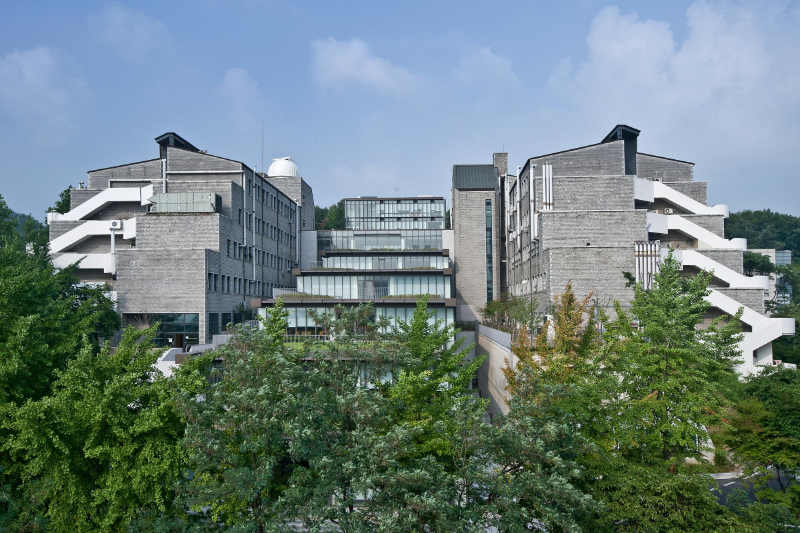Introduction
Overview

- Departmental Office : Science Building B Room #311
- Dean : Oesook Lee (Research area: Statistics)
- Tel : (02)3277-2283~4
- E-mail : nature@ewha.ac.kr
“The College of Natural Sciences prepares young women of today to be prospective leaders in tomorrow’s world of science and technology.
The College of Natural Sciences was inaugurated when the College of Liberal Arts and Sciences branched in 1982 into two colleges, one for the humanities and the other devoted to the natural sciences. In fact, a number of science departments were established prior to that time, since 1951, and have altogether played an integral role in providing basic and applied science education for the past 60 years. The College of Natural Sciences initially included the Departments of Mathematics, Physics, Chemistry, Biology, and Engineering. Later, to meet demands from the rapidly evolving industrial world, the Department of Statistics was incorporated in 1988 as well as the Department of Environmental sciences (1993), the Department of Computer Science (1994) and Department of Architecture (1994) The latter three departments were eventually incorporated to establish a separate College of Engineering in 1996. Today, theCollege of Natural Sciences encompasses five basic science departments: Mathematics, Statistics, Physics, Chemistry and Nano Science, and Life Science.
The College of Natural Sciences’ priorities are to cultivate top-class female scientists who will advance the frontiers in science and related technological endeavors. The Science buildings, which cover an area of 14876 square meters, houses state-of-the art research facilities and computer labs. A number of research centers are established to facilitate and cultivate interactions between students and faculty, which include Basic Sciences Research Institute, Institute of Mathematical Science, Research Institute of Eco Science, Center for Cell Signaling & Drug Discovery Research. The College of Natural Sciences has an annual enrollment of approximately 1,450 undergraduates and has produced nearly 12,000 graduates, most of whom today applying the foundations gained from studies in the Natural Sciences to their work in universities, research institutes, educational institutions, government organizations, or finance sectors. Basic sciences advance scientific technology, and continually provide new opportunities to new graduates.
The College of Natural Sciences offers a world-class education, based on a well-structured and diverse curriculum, and avidly maintains the aim to cultivate a new generation of young female leaders who advance science and the related technologies on the national and international levels.
Purpose and goal of Education
To teach the foundations in the basic sciences and to provide research training in a competitive environment such that females are prepared to make a significant impact on society and advance humankind.
- To cultivate wonder and curiosity about natural phenomena which exist in the universe and to stimulate practice in scientific methods and logical reasoning in an effort to better understand nature’s mystery
- To provide an interdisciplinary approach to studying the basic and applied sciences and develop expertise in specific fields of study
- To impart a thorough understanding of basic science principles and to stimulate critical thinking and creative research.
- To impart an understanding that science directly impacts society and daily life
